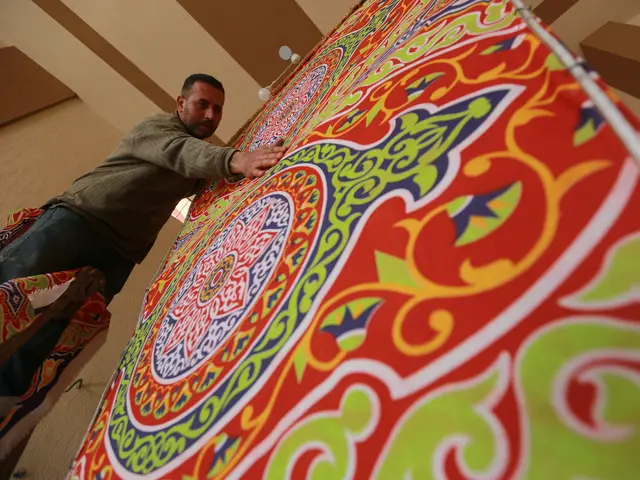by Sanaa Kamal
Palestinians in the Gaza Strip are preparing to mark the beginning of the Islamic holy month of Ramadan that falls on Friday amid a deteriorating economic situation due to the novel coronavirus outbreak.
On March 22, the Hamas-run Gaza government, declared a state of emergency, imposing a series of precautionary restrictions.
Since then, all mosques, universities, schools and restaurants have been shut down, and public gatherings have been prohibited, especially in the marketplaces.
As a result, commercial activities in the coastal enclave's markets have been very limited, and merchants have been complaining about accumulation of goods in their warehouses.
Ramadan, the holiest month of the year to Muslims, has special rituals and traditions in addition to the main religious practice, featuring fasting from dawn to sunset.
Decorating home and streets with lanterns is Ramadan's most common tradition.
Ibrahim al-Jamal, who sells lanterns and toys at al-Zawia market in Gaza city, said, on days like these, the market should be crowded with children and their parents coming to buy lanterns. But now there is no such festive atmosphere, he said.
In an attempt to mitigate the psychological impact of the current situation, especially on children, Gazan psychiatrist Sami Foad from Nuseirat refugee camp devised a simple method to make lanterns at home, which he started to teach children online.
"Without lanterns, children won't feel the Ramadan atmosphere," the 35-year-old father of two said.
Children are not allowed to go to stores to buy lanterns due to the state of emergency and most families cannot afford lanterns this year, he added.
Foad came up with the idea after dozens of parents complained to him about the psychological impact on their children who have been staying home for a long time.
Making lanterns, he said, makes children happy "as they partake in the preparations for Ramadan," and helps them "release the negative energy through doing meaningful things."
The psychiatrist says he spends hours on the social networking platform Skype, connecting with hundreds of children to teach them how to make lantern step by step.
Foad makes the lanterns with cardboard paper, candles, glue and scissors, which are usually available at home.
"Making handmade lanterns is not only meant to overcome the difficult situations, but also to encourage children to make use of material at home to create toys they are interested in," Foad said.
Wesam Farahat, 30, from Gaza city, found in the general recession an opportunity to make money by making handmade lanterns.
The young man who lost his job as a waiter at a local restaurant told Xinhua that he sells handmade lanterns at a much lower price than the common market price.
He said he used to make a lot of money selling handmade lanterns during the Ramadan, but there are not many customers this year. "Now, I will not be able to make ends meet for a few months."
 简体中文
简体中文

